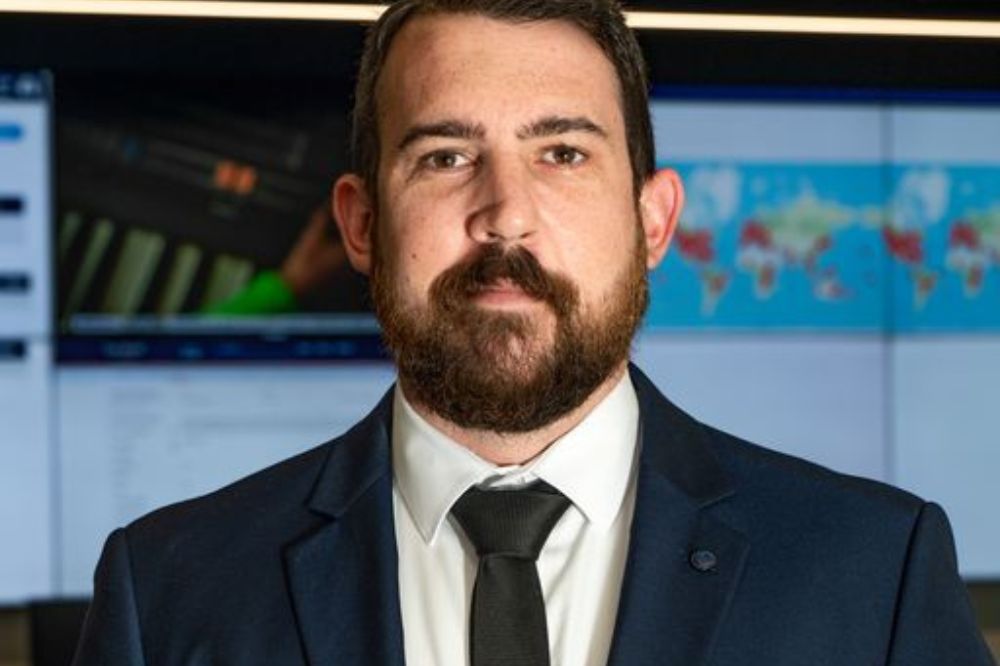International travel: WTP warns of post-COVID mental health challenges

However, one area where the pandemic’s clutches are currently being felt is international travel – but not how you might be thinking.
The compulsory COVID-19 tests and masks aboard flights have just about disappeared but, according to World Travel Protection’s (WTP) Paul Trotter (pictured above), the business world is not used to travelling anymore.
Mental health issues from a world changing pandemic
The result, says WTP’s security and intelligence lead, is an uptick in the number of business travellers, including in the insurance industry, suffering from mental health issues overseas.
“We are seeing it [an uptick],” he said. “Most of the consideration from businesses with travelling populations has gone towards the traditional impacts and identifying the traditional vulnerable travellers.”
Trotter said businesses are failing to consider the impact that two-years of a world changing pandemic has had on individuals “who may well be mentally and physically exhausted.”
“Travel and being away from their family and home routine may just be the straw that breaks the camel’s back,” he said.
Trotter said international business trips are putting added stress on people compared to pre-COVID simply because they are unaccustomed to taking them.
“I personally used to fly and live and work overseas, six weeks at a time every six weeks,” he said. “I was completely comfortable and happy with doing that but if I have a two year break from doing that, how is that travel going to affect me? How does being away from home and away from family affect the business traveller?”
Read more: Corporate risks: have insurance executives forgotten how to travel?
There’s also the issue of dealing with the home front if something goes wrong while the business traveller is away.
“If you’ve got a sick child or a death in the family, can you get your travellers home rapidly like you could previously?” he said. “Or are there prohibitive costs associated with those early flights so you’re going to need to make them wait a week.”
Other relatively routine complications are compounding that. For example, he said, replacing a passport in an emergency used to take about three days, now it can take three weeks.
“It just all boils over for them and it’s creating a rather sizable issue for the traveling population,” he said.
Some business travellers want to go home
As a result, WTP’s security and intelligence lead said some business travellers are wanting to come home.
“A lot of the time it just comes down to coaching with things like coping mechanisms,” he said. “For some people, it can be as simple as, they just want to know there’s someone there.”
He also suggested that business travellers remind themselves about those routine travel stresses that they may have forgotten in the eagerness to be going overseas again.
“Things like the impact of jetlag are going to be more pronounced than pre pandemic and all the various illnesses, aches, pains, everything else that we sort of grew to expect when we were traveling frequently throughout the year and then haven’t – that’s going to be back,” said Trotter.
Meanwhile, there’s geopolitical instability
Mental health challenges come on top of the usual risk management concerns the travel management company deals with, like geopolitical instability.
“Ukraine is the most obvious example of this,” said Trotter. “Latin America is another really good example of it with the Brazilian election [and storming of parliament building] and the Estallido Social upheaval in Chile.”
There’s also the continued sabre rattling between the US and China, Turkey and Greece.
Terrorism is an ongoing threat. Trotter said risk concerns shifted more towards domestic and far right extremism during COVID-19, partly because international groups had difficulty travelling.
However, he said Islamic State and its affiliates have continued to conduct attacks across North Africa and the Middle East. So have narco-terrorists in Latin America
“As we return to an increased rate of travel and tourism, those threats return significantly and the likelihood of attack increases,” said Trotter.
Read next: Greater focus on employers’ duty of care ahead of business travel revival
He said geopolitical instability of all kinds can have a “massive impact” on business travel.
“Not just on the most obvious stuff, like being able to drive on the road because it’s blocked, but also on things like airlines’ willingness to fly to that destination, businesses willing to operate there, even to the more extreme end of diplomatic missions pulling out because it’s no longer safe for them to operate there,” said Trotter.
He said business travellers are “naturally quite stressed” by these events. However, prior planning is key.
“We’d consider things like upcoming elections, religious events and all the other notable events occurring in a destination,” said Trotter. “Then we’d consider how those will impact your travel, whether through threats, disruption or just general difficulty caused by a lack of services during those times.”
WTP has seen it all before. “We’re more than familiar with the absolute worst things that can happen,” said Trotter.





